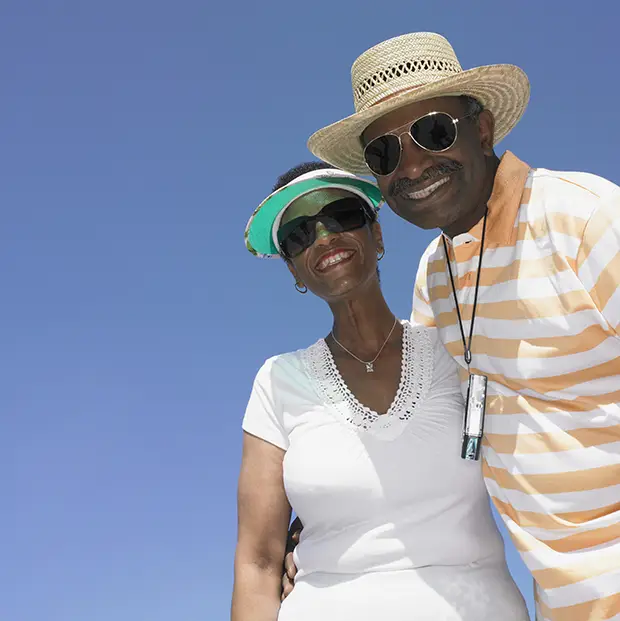
Submitted by Eye Surgical Associates
The days are longer, the sun is hotter, the outdoors beckons and out comes the sunscreen. Summer revelers looking forward to sizzling-hot fun in the sun shouldn’t overlook their eyes when it comes to protecting themselves from damaging ultraviolet rays, warns the doctors of Eye Surgical Associates.
Excess sun exposure can put people at risk of serious short-term and long-term eye problems. If eyes are exposed to strong sunlight for too long without protection, UV rays can burn the cornea and cause temporary blindness in a matter of hours. Long-term sun exposure has also been linked to an increased risk of cataracts, cancer, and growths on or near the eye.
Here are six things you can do to cut your risk of eye damage from the sun:
- Wear the right sunglasses — Look for those labeled “UV400” or “100 percent UV protection” when buying sunglasses. Less costly sunglasses with this label can be just as effective as the expensive kind. Darkness or color doesn’t indicate strength of UV protection. UV rays can go through clouds, so wear sunglasses even on overcast days. While contacts may offer some benefit, they cannot protect the entire eye area from burning rays.
- Sunglasses for kids too — Make sure your children and grandchildren wear sunglasses and hats whenever they are in the sun. Children’s eyes are just as delicate as their skin but only 32 percent of parents make sure their child has UV protecting sunglasses compared to 82 percent of parents that make sure they put sunscreen on their child, according to a sun safety survey by the American Academy of Ophthalmologists. For both eyes and skin, it’s best to keep children out of direct sunlight during the middle of the day.
- Don’t stare at the sun — That’s because staring directly at the sun can burn holes in the retina, the light-sensitive layer of cells in the back of the eye needed for central vision. This condition is called solar retinopathy. While rare, the damage is irreversible. This is very timely advice because on August 21, 2017 a total solar eclipse is passing through southern Illinois. We should see a partial eclipse in Central Illinois between noon and 1:30pm. The next eclipse in the US isn’t until 2024!
- Check your medication labels — One in three adults uses medication that could make the eyes more vulnerable to UV ray damage. These include certain antibiotics, birth control and estrogen pills, and psoriasis treatments containing psoralen. Check the labels on your prescriptions to see if they cause photosensitivity. If so, make sure to protect your skin and eyes or avoid sun exposure when possible.
- Put a lid on it — In addition to shades, consider wearing a hat with broad brim. They have been shown to significantly cut exposure to harmful rays. Don’t forget the sunscreen!
- Don’t drive without UV eye protection — Don’t assume that car windows are protecting you from UV light. A recent study found that side windows blocked only 71 percent of rays, compared to 96 percent in the windshield. Only 14 percent of side windows provided a high enough level of protection, the researchers found. So, when you buckle up, make sure you are wearing glasses or sunglasses with the right UV protection.
If you would like more information about vision health or to schedule a comprehensive eye exam, contact ESA Eye Surgical Associates at 309-662-7700. Ophthalmologists Daniel Brownstone, Catharine Crockett, Scott Pinter, and Optometrist Kathleen Vize will be happy to assist you. ESA is located at 1505 Eastland Drive Suite 2200 Bloomington.

